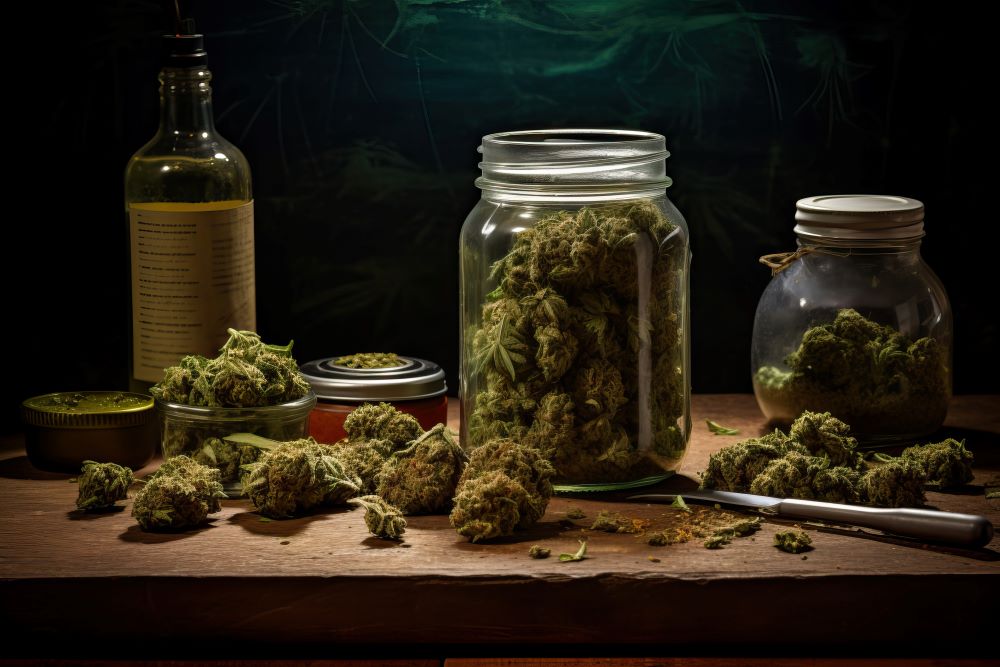
Tobacco companies are slowly gaining their footing in the cannabis business.
By Stefanie Rossel
Eight years after the first tobacco company invested in a cannabis firm, hardly a month passes without news on the progress of cigarette makers’ ventures into this field. On Sept. 5, Organigram Holdings, BAT’s first major investment in the cannabis sector, announced that it had closed the second of three tranches of a CAD124.56 million ($92.2 million) follow-on equity investment by BAT’s BT DE Investments subsidiary.
As part of the transaction, Organigram in 2023 created a strategic investment pool, Jupiter, to be funded with CAD83.1 million. According to a press release, Jupiter is targeting investments in emerging cannabis opportunities that enable Organigram to apply industry-leading capabilities to new markets, thus expanding its global footprint.
Organigram’s first Jupiter investment, in March, was in Open Book Extracts, a Roxboro, North Carolina, USA-based manufacturer of legal cannabinoid ingredient production, formulation and finished goods. The $2 million investment was Organigram’s second into the U.S. market. In June, the company invested €17 million ($18.8 million) in Sanity Group, a leading German cannabis company.
Meanwhile, on Aug. 1, Aurora Cannabis announced a commercial collaboration with Cogent International manufacturing, a subsidiary of inhalation and oral delivery systems provider Vectura Fertin Pharma, which is associated with Philip Morris International. Through the arrangement, Cogent will launch its Luo CBD lozenge on Aurora’s Canadian medical cannabis patient platform, giving it access to patient feedback that will be used for building data for future analysis.
There is, however, also less upbeat news from the sector. Altria’s Cronos Group, which has been struggling to find its footing in the Canadian recreational market, ended last year with a $168.7 million loss; in mid-2023, Cronos was even reviewing sales options.
In June this year, Imperial Brands’ Oxford Cannabinoid Technologies (OCT) delisted from the London Stock Exchange, where it had been one of the first cannabis companies to start trading in 2021. Since its listing, the company’s share price had fallen by 97 percent, with its market capitalization plunging to £1.5 million ($1.96 million). OCT stressed that it had no immediate cash flow concerns but said that, as an unlisted company, it expected to have access to a larger pool of capital.
Room for Experimenting

Deepak Anand, principal of Vancouver-based ASDA Consultancy Services, describes the challenges tobacco companies are encountering in the cannabis sector as part of the natural progression for businesses entering a new industry. “For most tobacco companies, these early-stage investments are not particularly significant from a financial standpoint; this is certainly true for Altria,” he says. “Their involvement in cannabis is more about gathering intelligence. By holding stakes in cannabis companies, tobacco firms gain insights into the market, including product trends and production methods, in case they decide to scale up their operations in the future.”
According to Anand, Organigram is a prime example of this approach. “What’s notable about Organigram is their product development collaboration—a center of excellence focused on next-generation cannabis products,” he says. “As a result, we see many personnel from BAT actively involved at Organigram’s Moncton, New Brunswick facility. They are conducting extensive R&D on cannabinoid products, immersing themselves in different sectors of the cannabis industry, leveraging the federally legal market to experiment and innovate.”
In August 2024, Organigram announced preliminary results from its clinical pharmacokinetic study on nano-emulsion technology. Branded as FAST (fast-acting soluble technology), this patent-pending innovation aims to offer faster onset, improved bioavailability and a more predictable duration of cannabis effects. Organigram expects to launch FAST in the fall, starting with gummies.
Anand explains why many tobacco companies are zeroing in on CBD, pharmaceutical or medical cannabis segments. “Tobacco firms have realized they must prioritize consumer safety and navigate complex legal frameworks. For instance, the U.K.’s Proceeds of Crime Act presents a unique challenge. Since nonmedical cannabis remains illegal in the U.K., investing in cannabis companies—even in jurisdictions where it is legal—can be legally complicated.”
Potential New Market
Cannabis continues to be legalized for medical and recreational use in more jurisdictions, albeit at a slower pace than in recent years. On April 1, Germany became the third country in the European Union after Malta and Luxemburg to authorize recreational cannabis, although under EU pressure it stopped short of the originally envisioned full legalization. The first phase allows consumers to cultivate cannabis for personal consumption in social clubs; in a second step, Germany will test legalization in selected regions.
Six months into partial legalization, recreational cannabis is hardly flourishing: The social clubs are just getting going while Bavaria continues to fight cannabis consumption with new local laws. Nevertheless, Anand sees opportunity in Germany. The country’s 2017 legalization of medical cannabis coincided with the introduction of telemedicine. Telemedicine providers specialized in prescriptions for cannabis have mushroomed since. “Cannabis is now regarded as any other medical product,” says Anand. “That shift alone has created very strong market forces. Most people who want cannabis can get a prescription and obtain it.”
He expects the cannabis landscape to experience another shift once the pilot projects under the second pillar of Germany’s cannabis law become operational. “Once consumers are able to access cannabis products in pharmacies or licensed stores, we’ll see a new phase in the market,” says Anand. In April, lawmakers released draft legislation to implement the second pillar of Germany’s cannabis law.
Japan is another market worth watching. In 2023, the country passed a bill to amend its Cannabis Control Law for the first time in 75 years. The proposed revisions, expected to take effect as soon as this year, will bring much-needed clarity to CBD regulations and may accelerate legal use in areas like medicine, health, beauty, beverages and edibles. Citing Euromonitor International, The Japan Times noted that sales of CBD products in Japan have grown sixfold over the past four years, reaching ¥24 billion ($154 million) in 2023.
“I believe this amendment will open up the CBD category, although the restrictions on THC content are strict compared to other markets,” says Anand. “That poses a challenge, but it’s significant that the Japanese government is moving away from its previous stance, where CBD was only allowed if derived from the seed and stalk of the cannabis plant, rather than the flowers, where the most active cannabinoids are found.”
As for Japan Tobacco, the only major international tobacco company without a stake in the cannabis sector, Anand expects them to enter the space “sooner rather than later.” “The amendment of Japan’s Cannabis Control Law, along with increased activity from JT’s global peers, will likely prompt the company to explore opportunities in this field more aggressively,” he says. However, since JT is partially owned by government, any major business decision would require the approval of Japan’s minister of finance.
Shifting Sector
Statista expects the global cannabis market to generate $64.73 billion in 2024 and then grow at a compound annual growth rate of 3.01 percent until it reaches a value of $75.09 billion by 2029. With an anticipated revenue of $42.98 billion in 2024, the United States will continue to be the world’s largest market for cannabis, although the substance remains illegal on the federal level.
Currently, medical cannabis is legal in 38 states and various U.S. territories while recreational use is permitted in 24 states and Washington, D.C. In April, the Drug Enforcement Administration (DEA) announced that it would reclassify the drug from the strictest Schedule I, which refers to drugs with no accepted medical use and a high potential for abuse, to the less stringent Schedule III.
By rescheduling cannabis, the drug would be studied and researched to identify concrete medical benefits, opening the door for pharmaceutical companies to get involved with the sale and distribution of medical cannabis in states where it is legal. Reclassifying cannabis would also represent a first step toward narrowing the policy chasm between state and federal cannabis laws.
On Aug. 27, however, the DEA postponed its cannabis reclassification hearing to Dec. 2, after the U.S. presidential election. The announcement sent cannabis stocks plunging. Asked to take a position on a ballot measure seeking to legalize recreational cannabis in Florida, Republican presidential contender Donald Trump on Sept. 9 said that if he wins in November, his administration would “focus on research to unlock the medical uses of marijuana.”
The Democratic presidential candidate, Kamala Harris, too appears receptive. “Both sides supporting the cause is certainly good news for the cannabis industry,” says Anand. “But at this point, it is still uncertain what U.S. legalization might look like. What we have seen so far is the DEA comment on rescheduling, which will still involve cannabis to be considered like a pharmaceutical product. But then what happens on a state-by-state basis—will there be a Department of Justice memo forcing the government to leave the states alone because of the states’ rights?”
The cannabis sector is undergoing a significant transition, according to Anand. “In North America, there was a surge of early interest and substantial investment in the sector, but much of that capital was misallocated or even wasted. Some early-stage founders mismanaged their companies, leading to inefficiencies. The challenge with cannabis legislation is that it often moves more slowly than anticipated, which leads to disappointment when milestones aren’t met, such as the DEA delaying hearings or Germany adopting a phased approach to legalization.”








